|
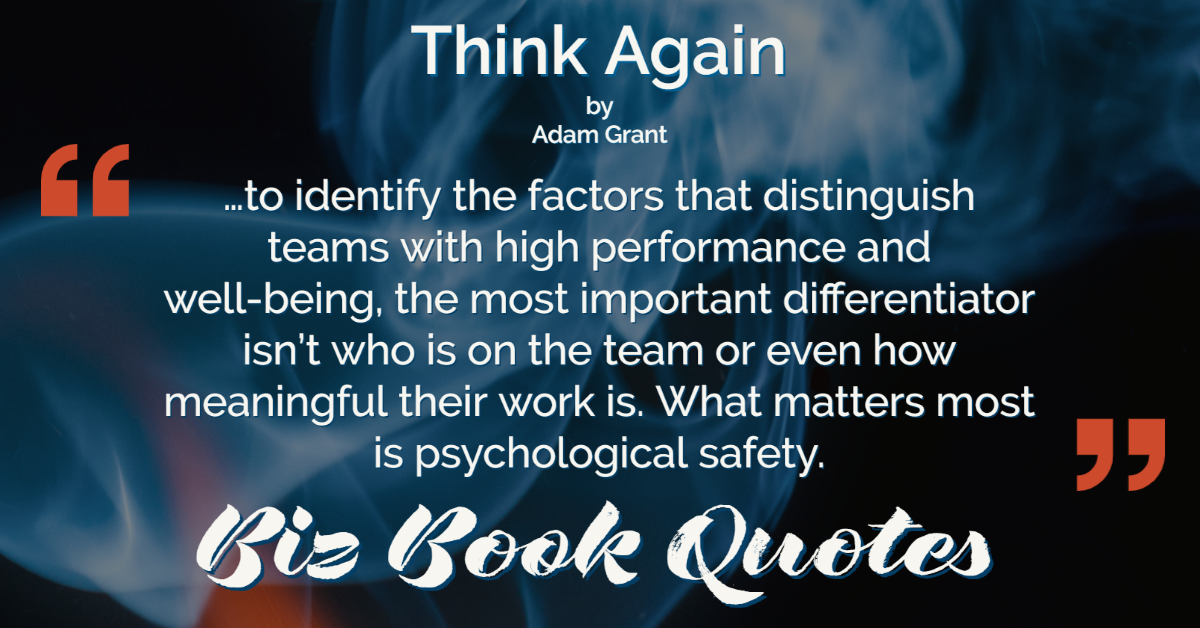
|
Think Again:
…to identify the factors that distinguish teams with high performance and well-being, the most important differentiator isn’t who is on the team or even how meaningful their work is. What matters most is psychological safety.
|
209 |
|
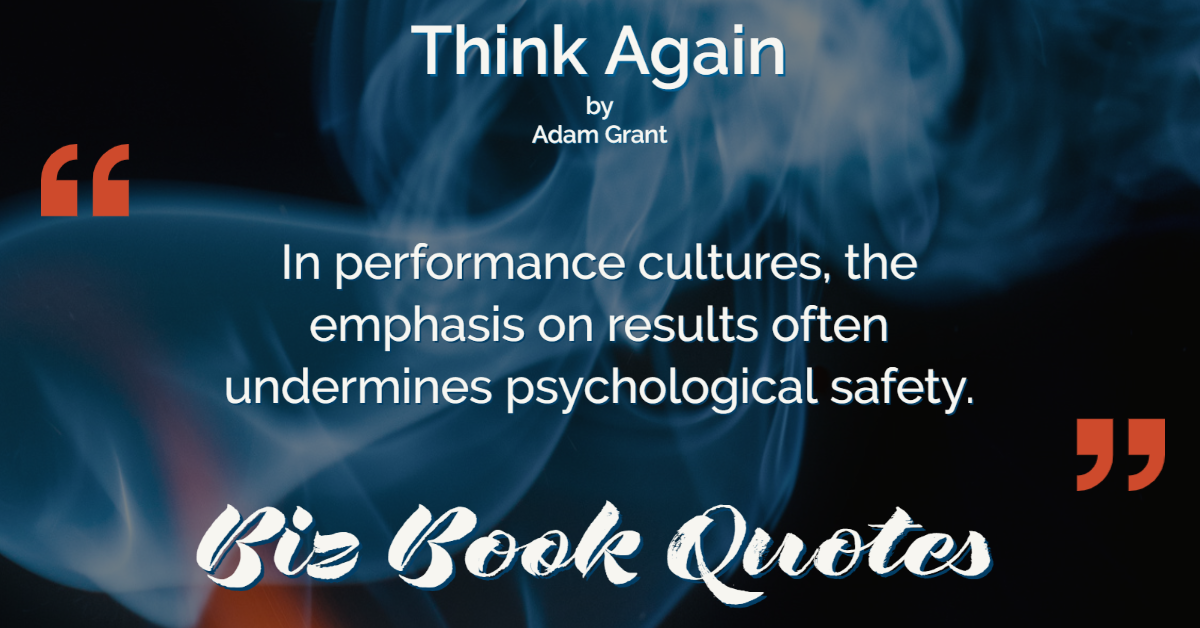
|
Think Again:
In performance cultures, the emphasis on results often undermines psychological safety.
|
209 |
|

|
Think Again:
When we see people get punished for failures and mistakes, we become worried about proving our competence and protecting our careers.
|
209 |
|
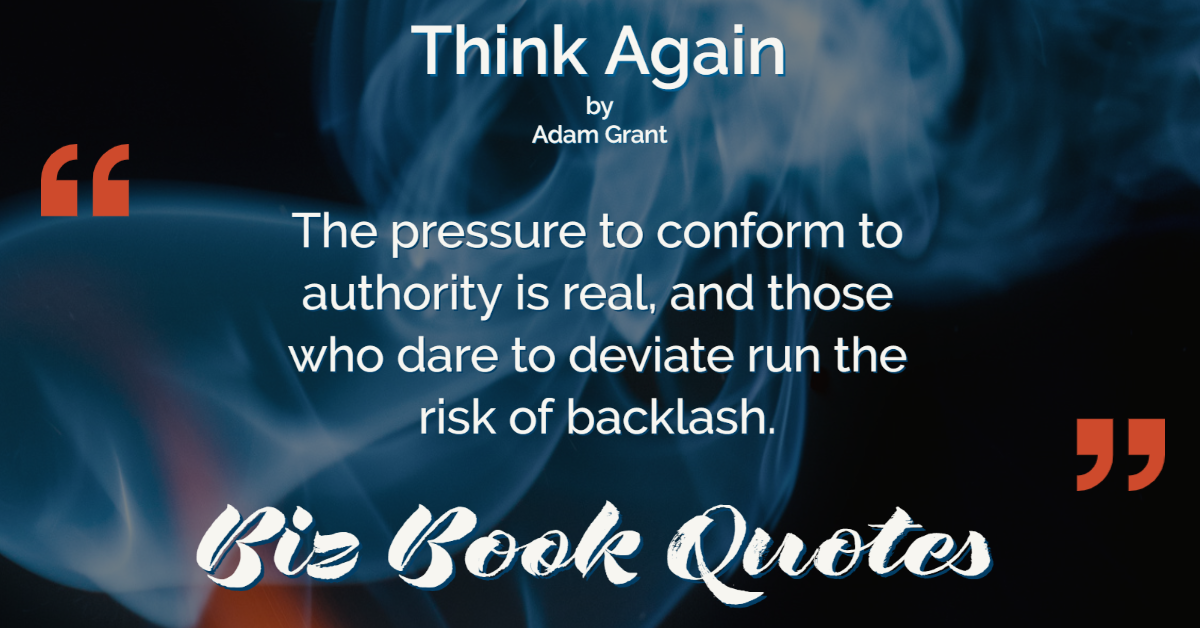
|
Think Again:
The pressure to conform to authority is real, and those who dare to deviate run the risk of backlash.
|
209 |
|
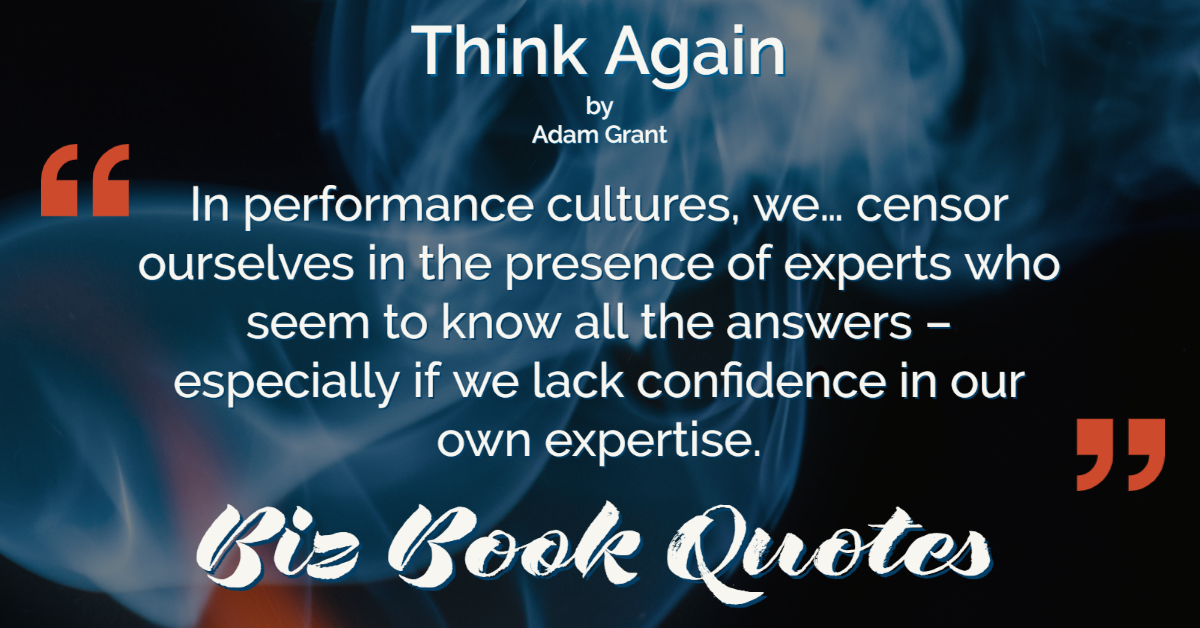
|
Think Again:
In performance cultures, we… censor ourselves in the presence of experts who seem to know all the answers – especially if we lack confidence in our own expertise.
|
209 |
|
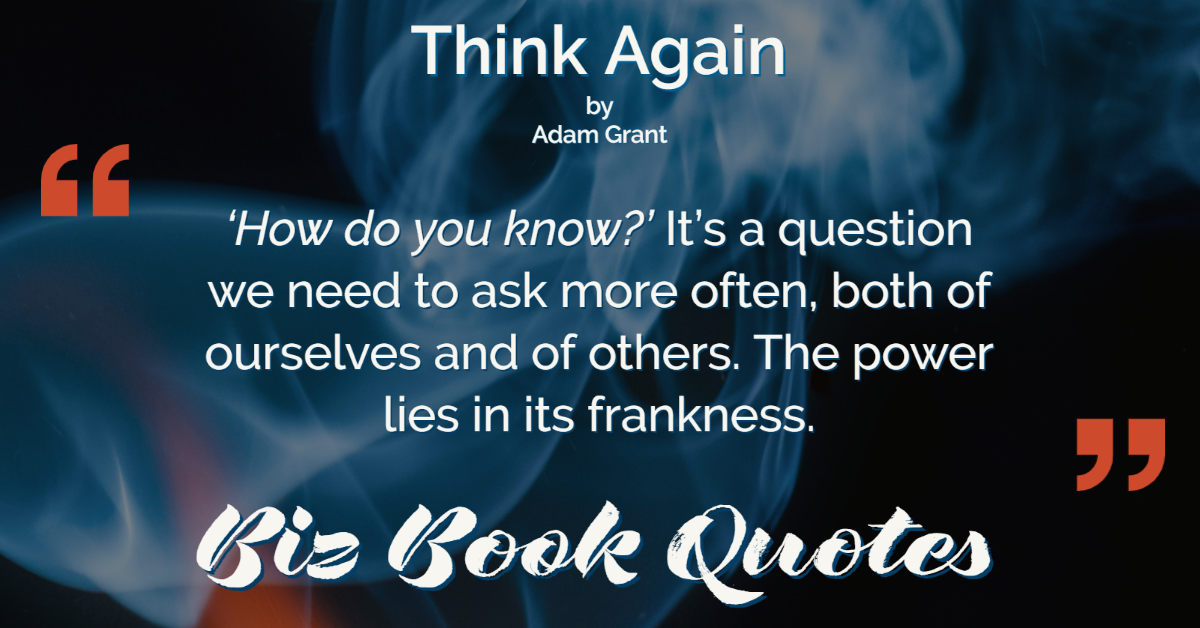
|
Think Again:
How do you know? It’s a question we need to ask more often, both of ourselves and of others. The power lies in its frankness.
|
211 |
|
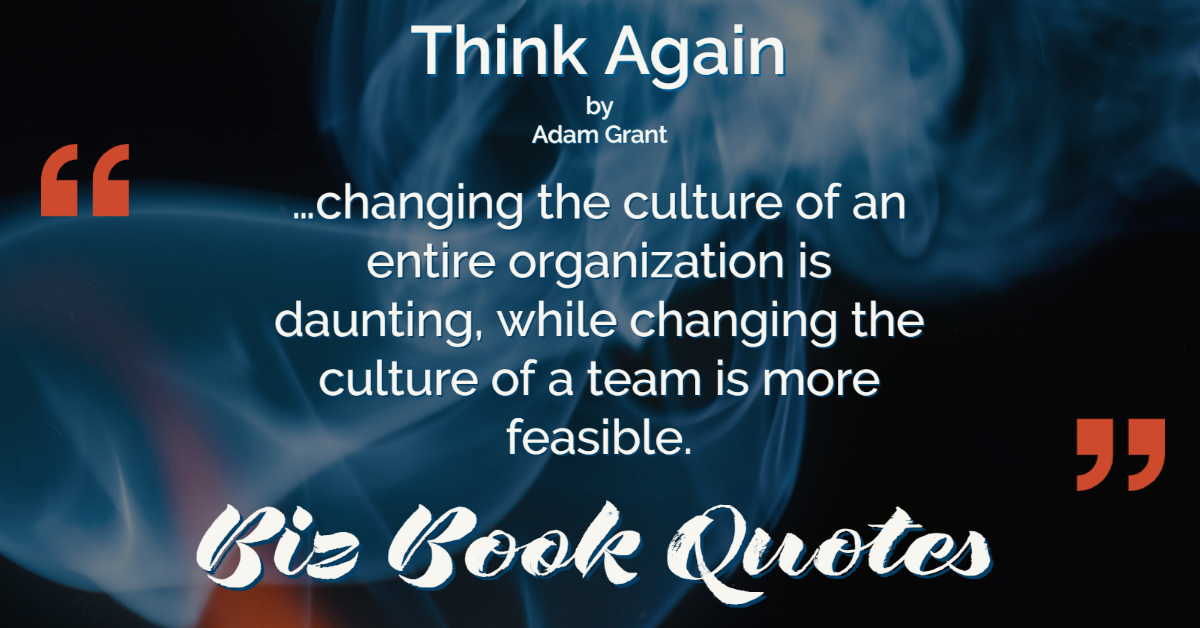
|
Think Again:
…changing the culture of an entire organization is daunting, while changing the culture of a team is more feasible.
|
212 |
|
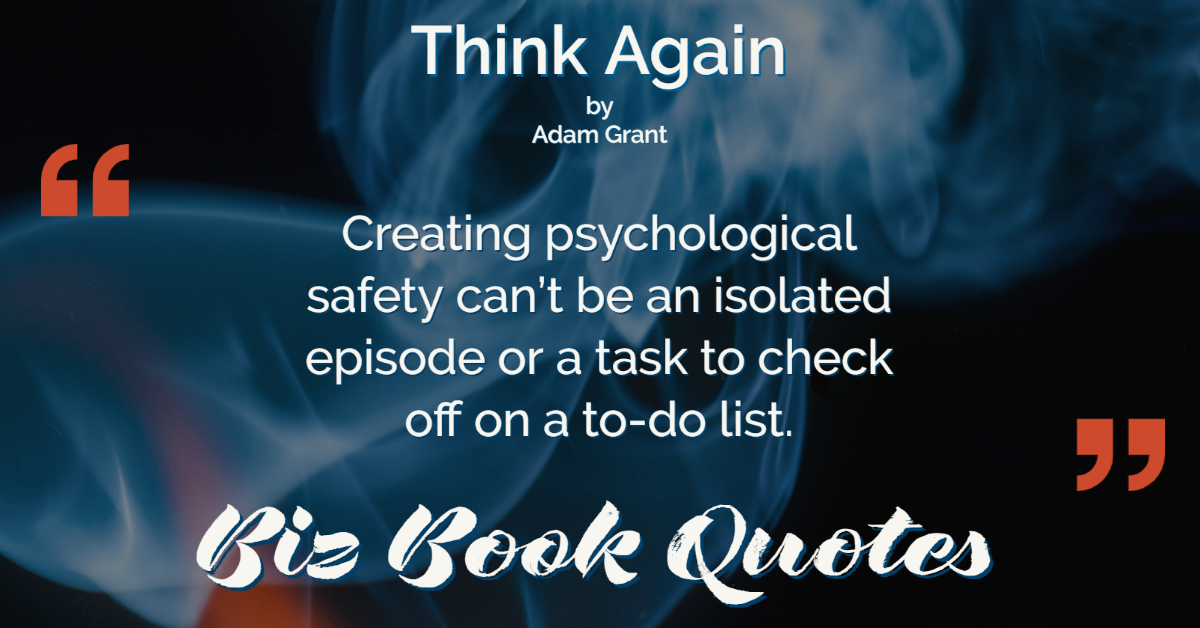
|
Think Again:
Creating psychological safety can’t be an isolated episode or a task to check off on a to-do list.
|
213 |
|
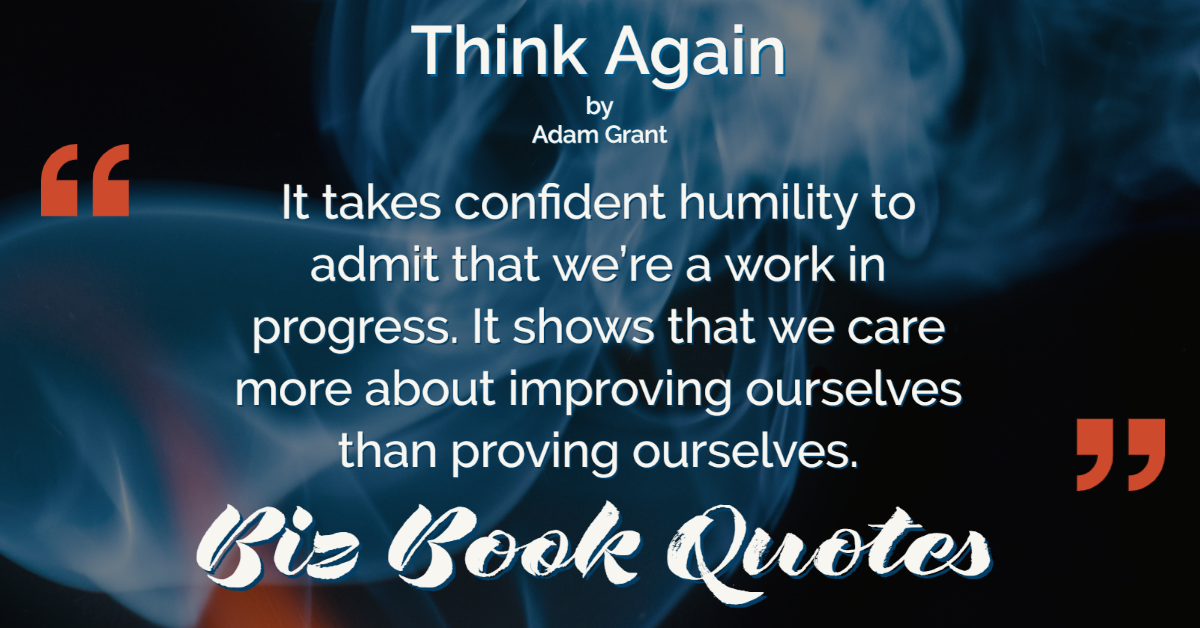
|
Think Again:
It takes confident humility to admit that we’re a work in progress. It shows that we care more about improving ourselves than proving ourselves.
|
215 |
|
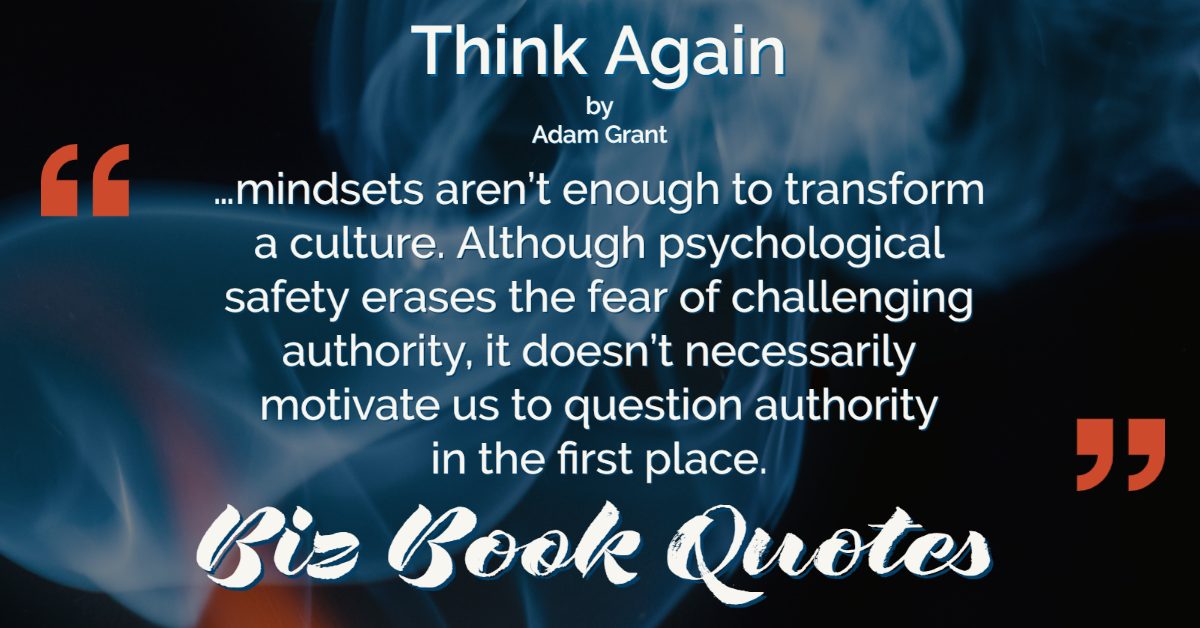
|
Think Again:
…mindsets aren’t enough to transform a culture. Although psychological safety erases the fear of challenging authority, it doesn’t necessarily motivate us to question authority in the first place.
|
215 |











